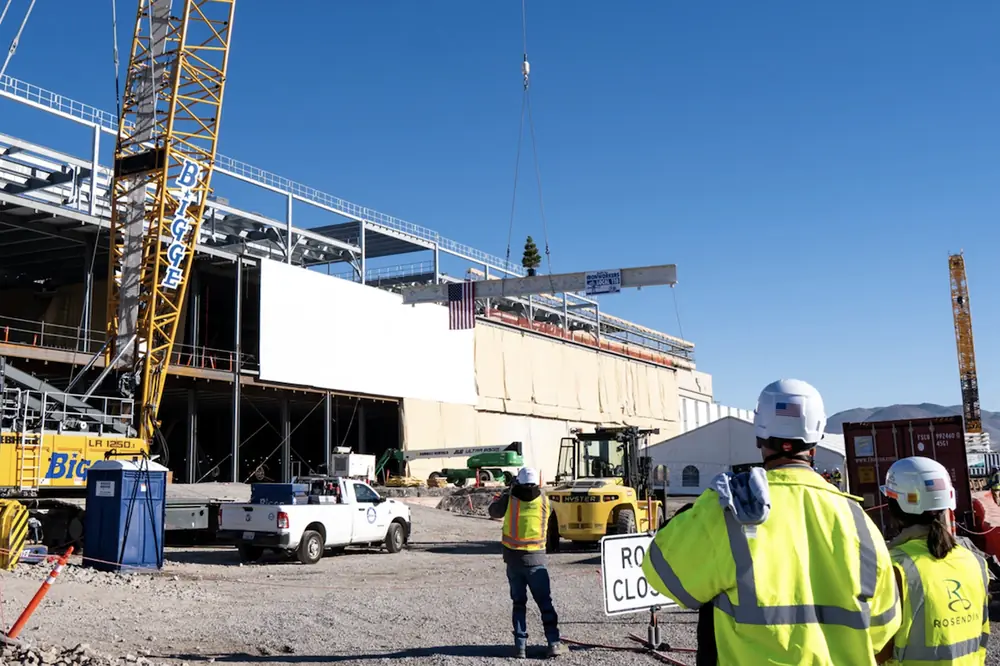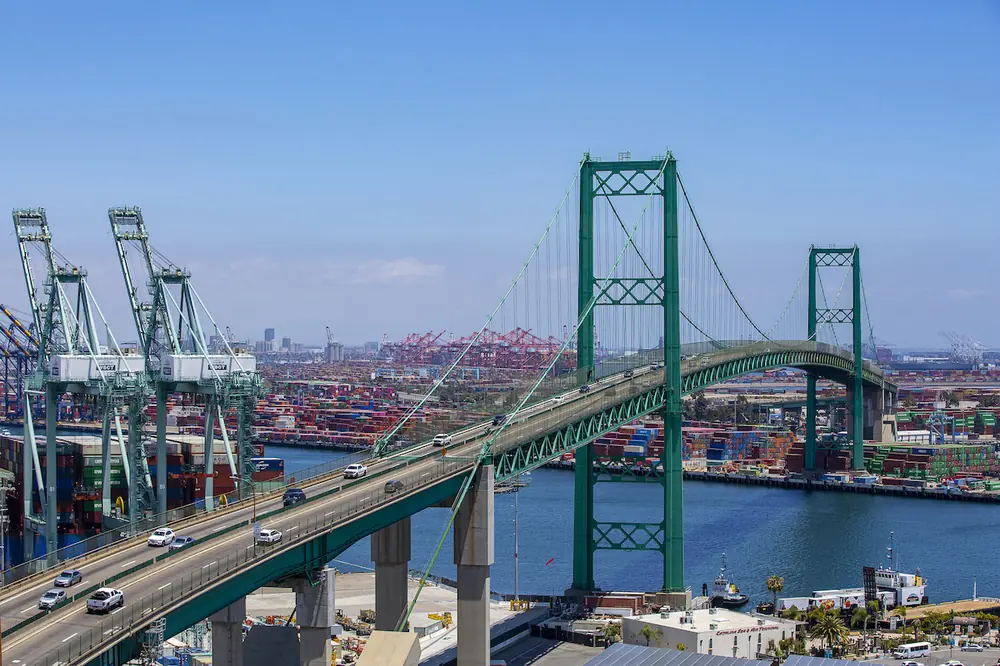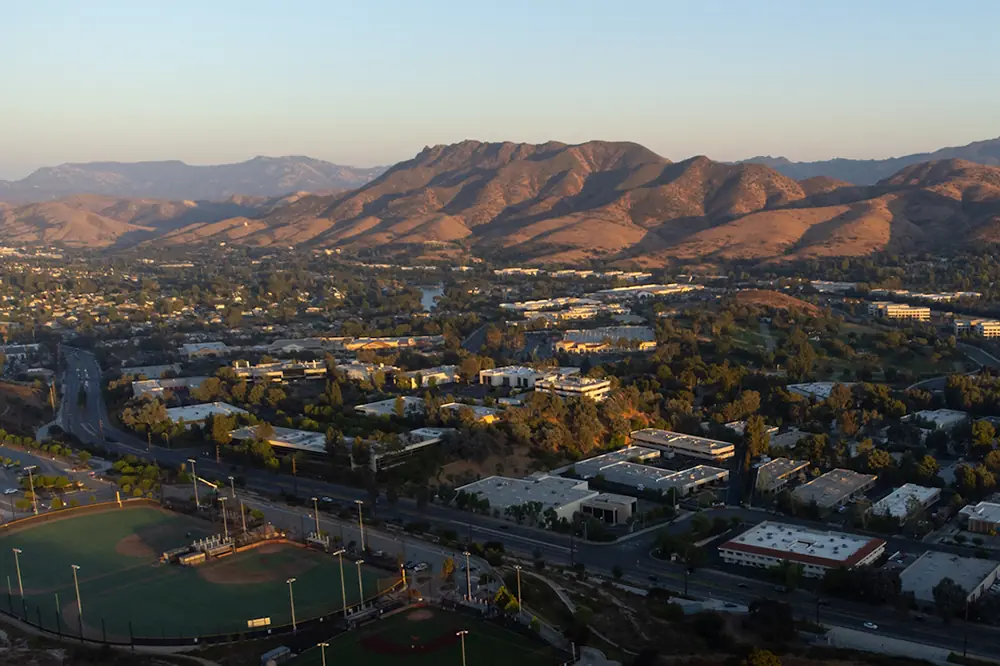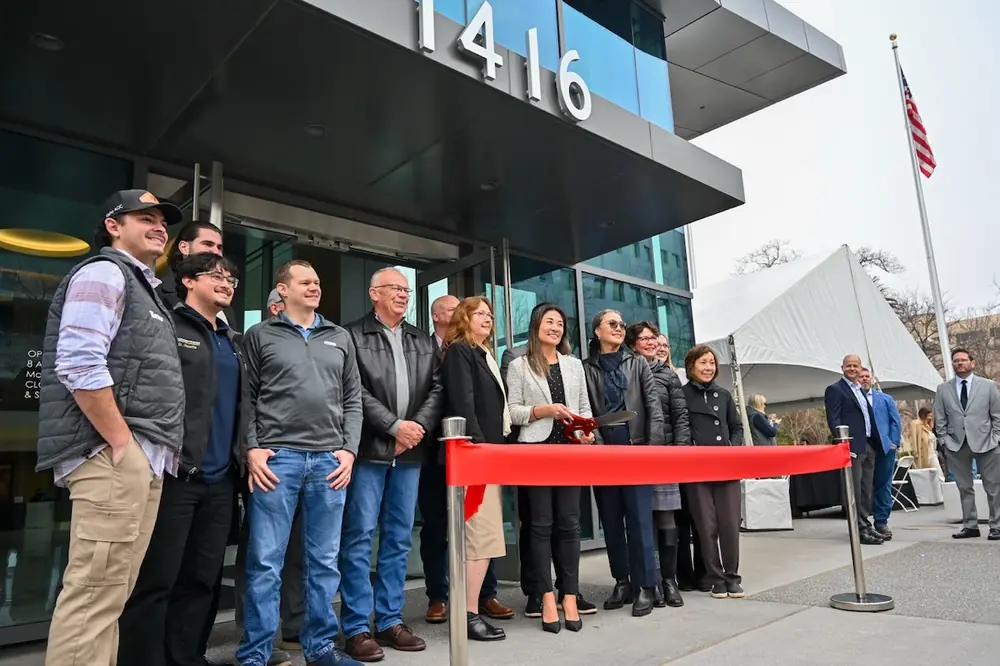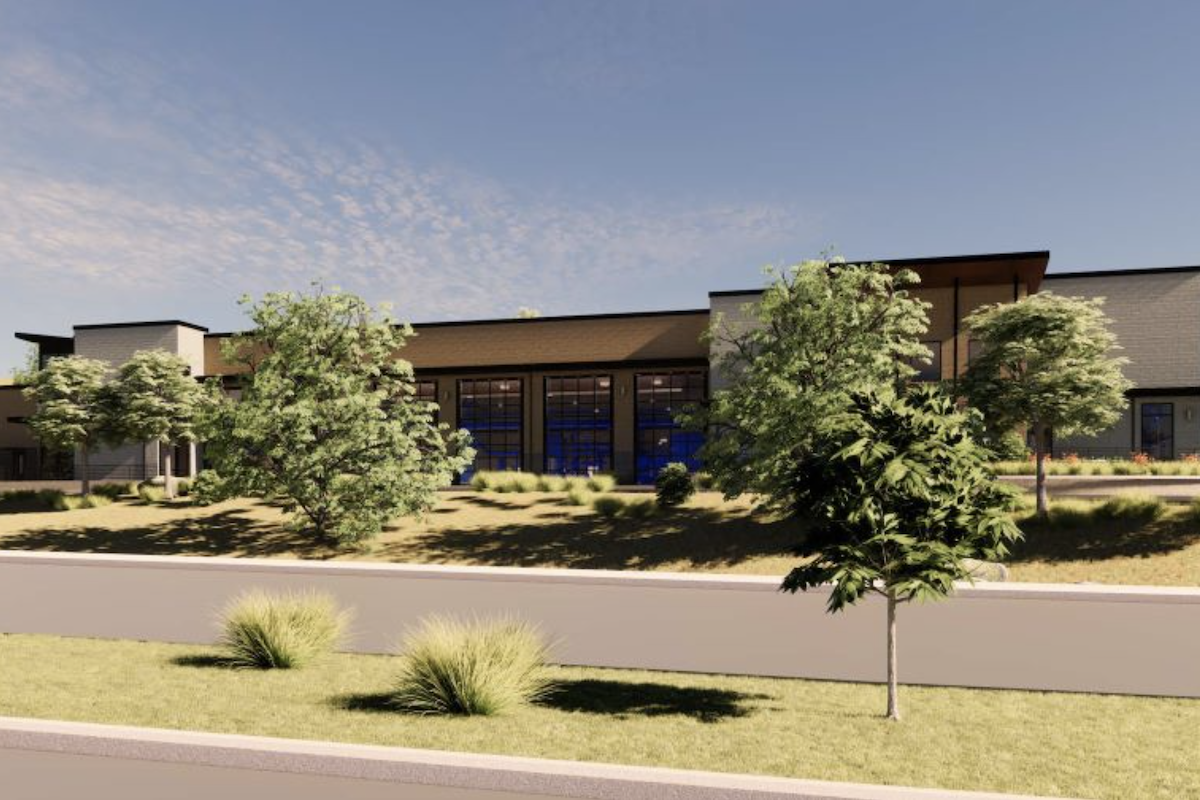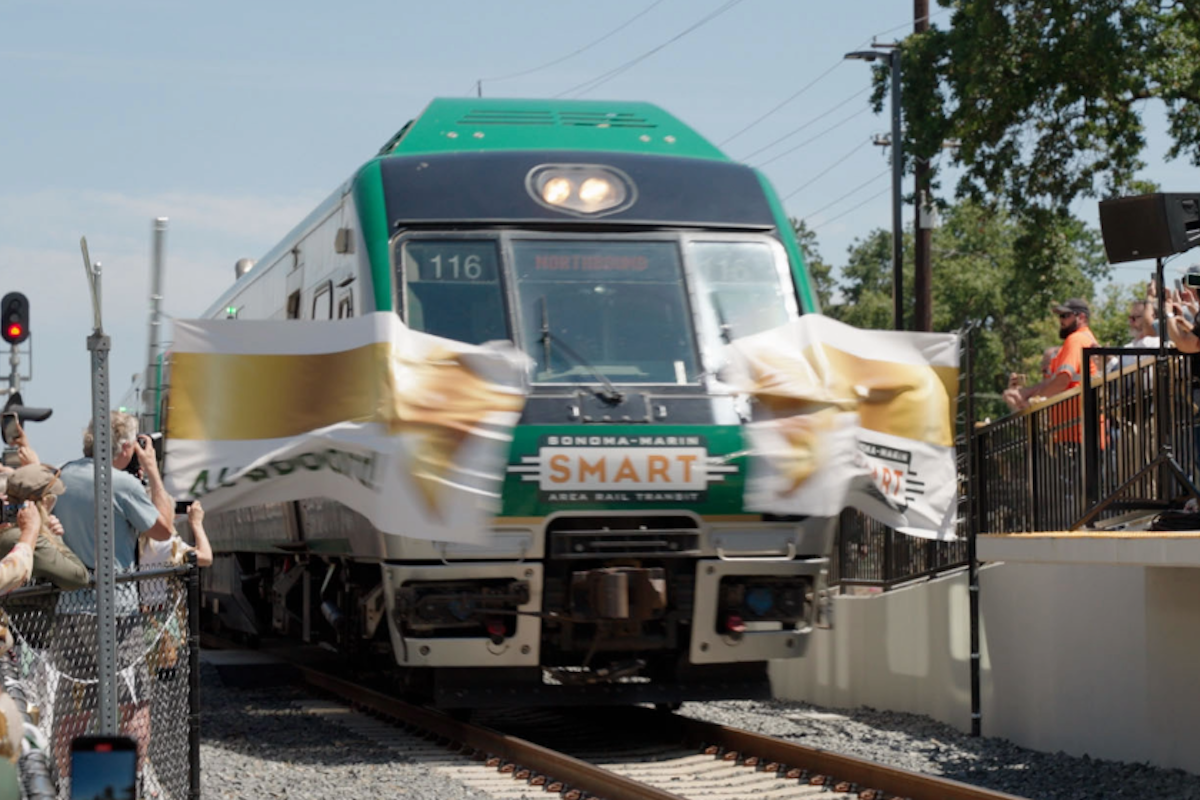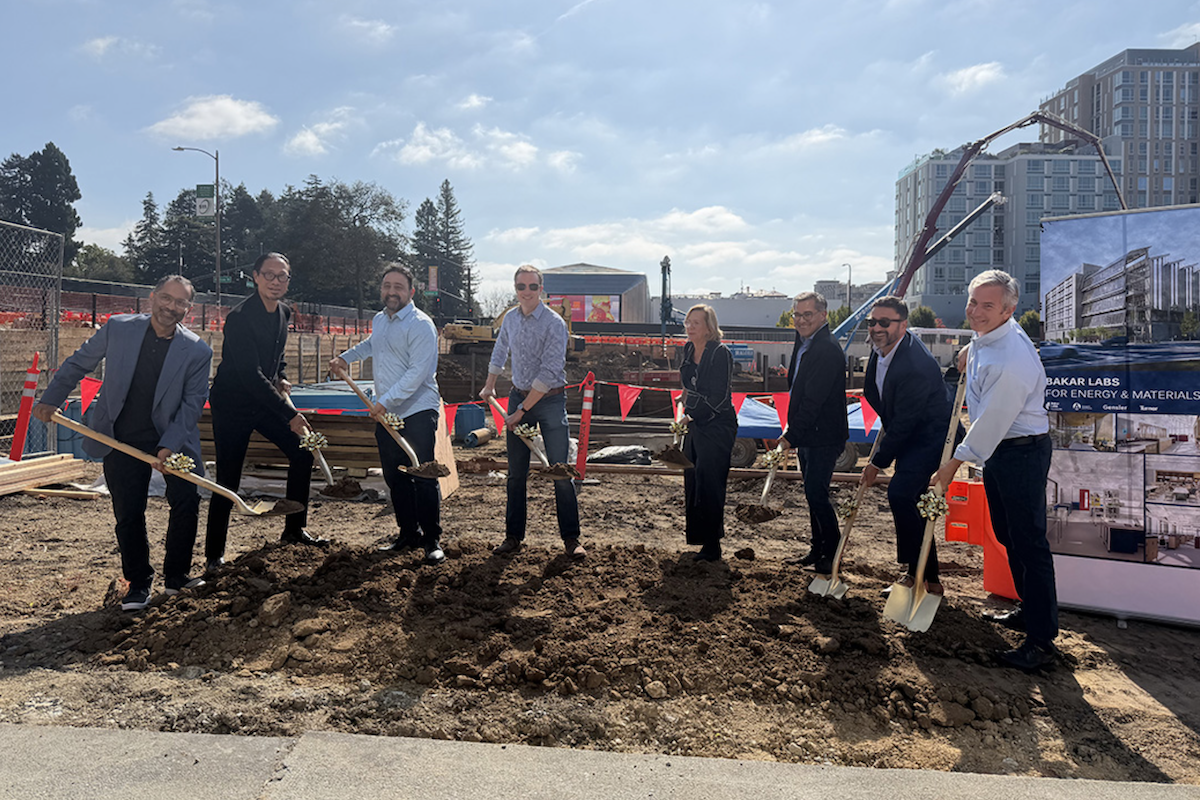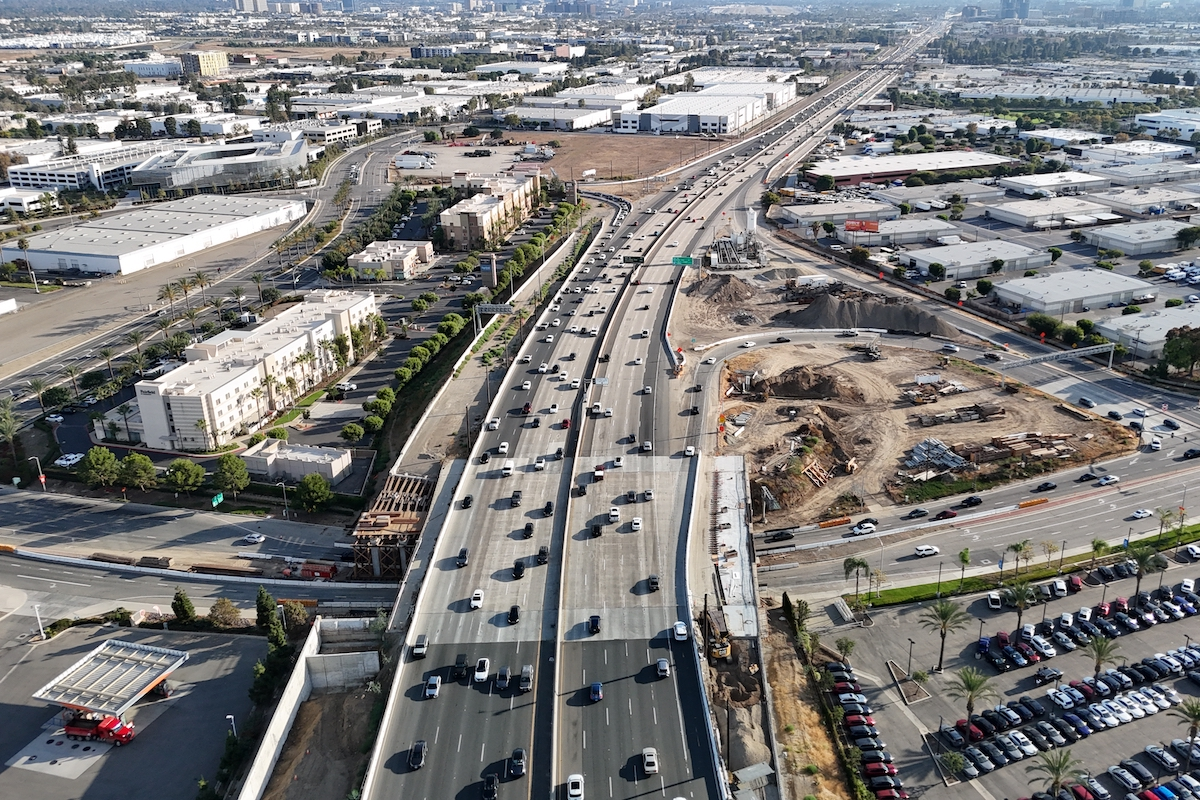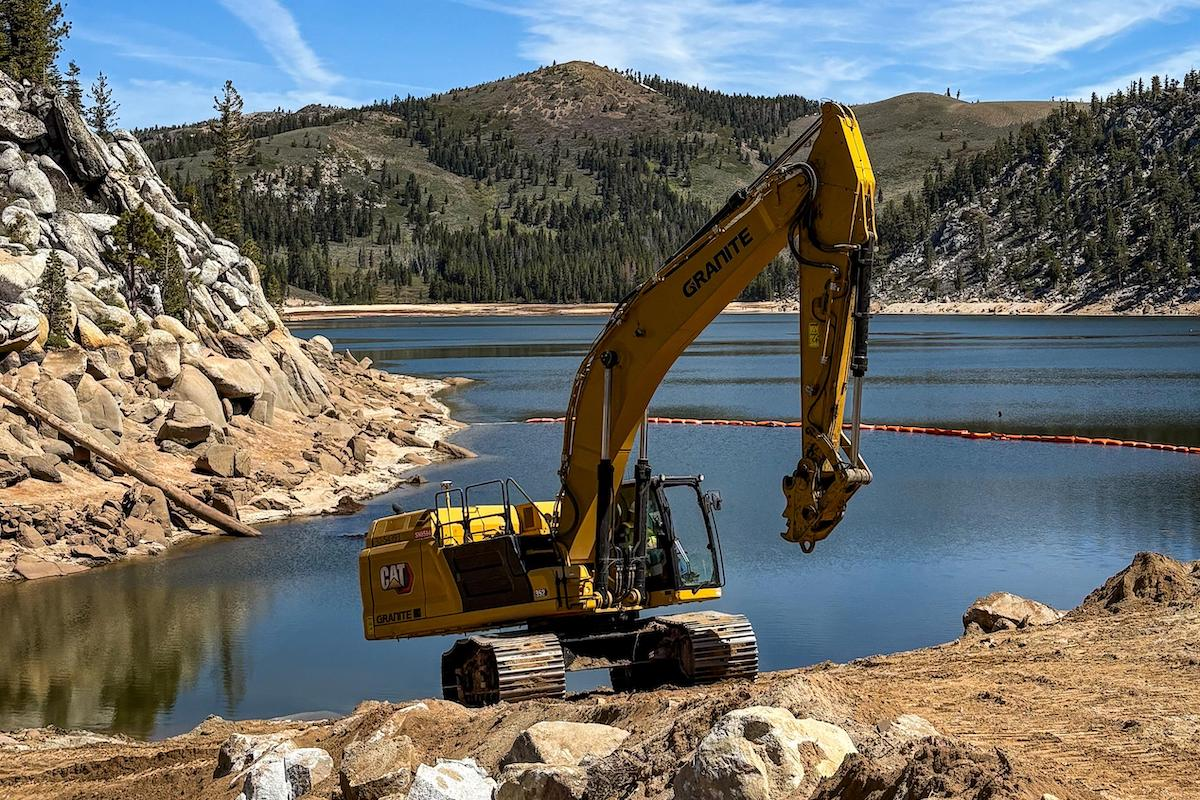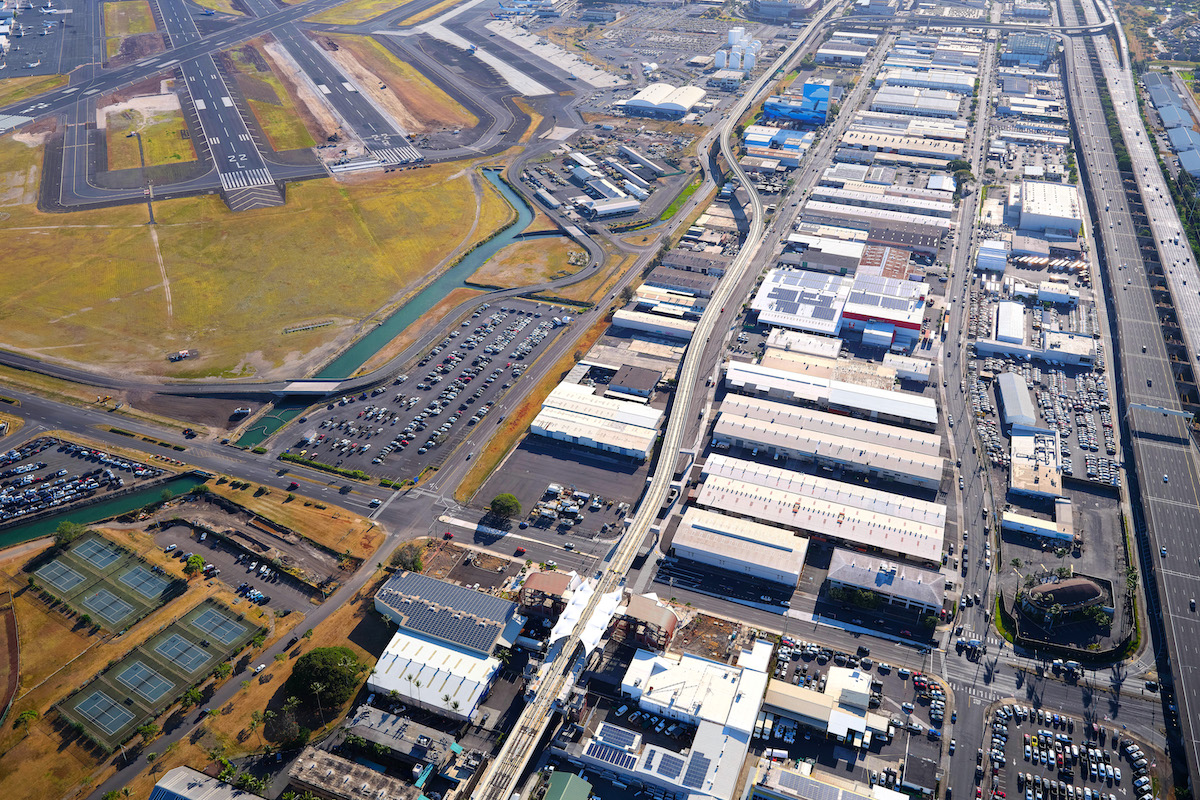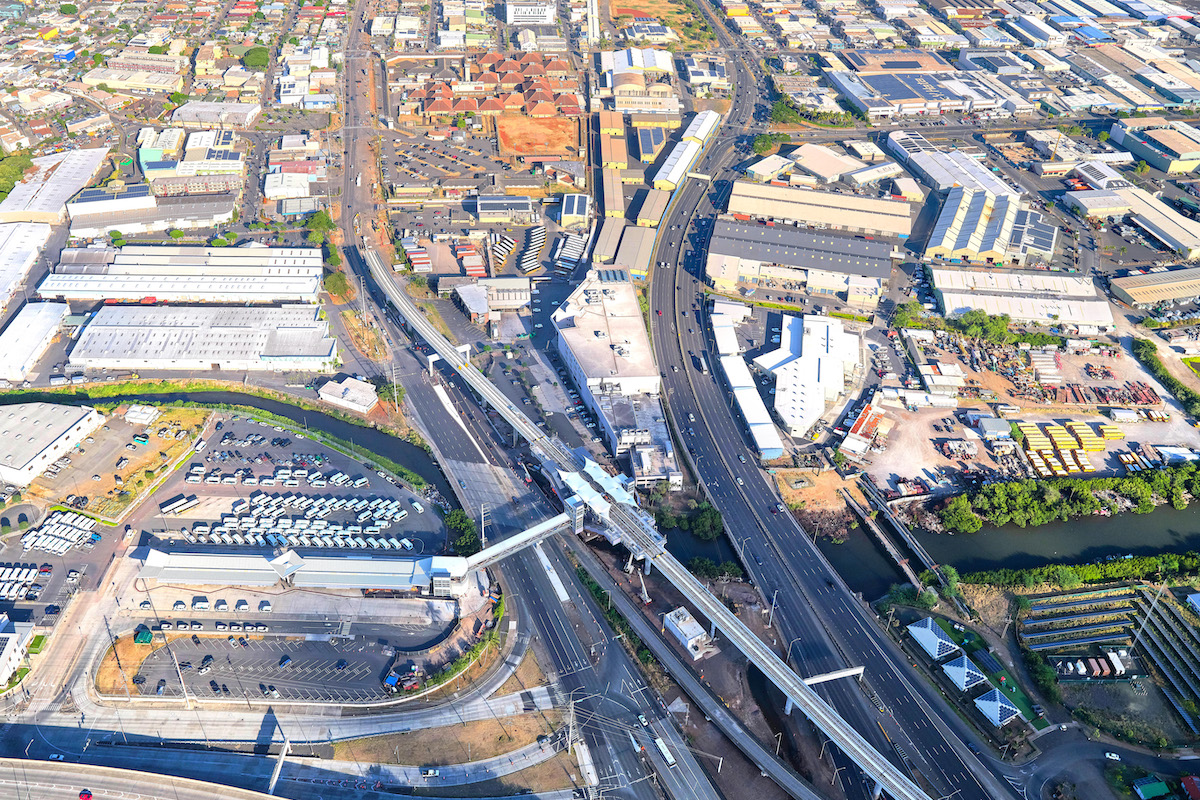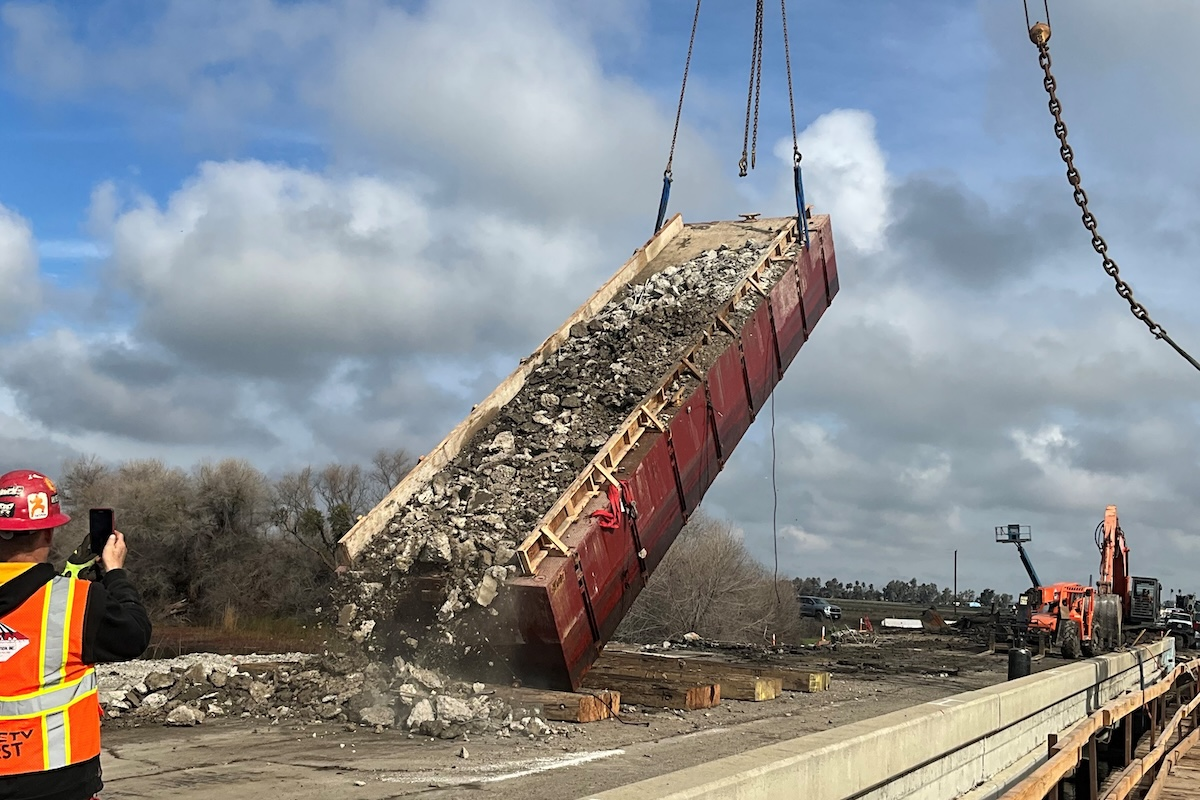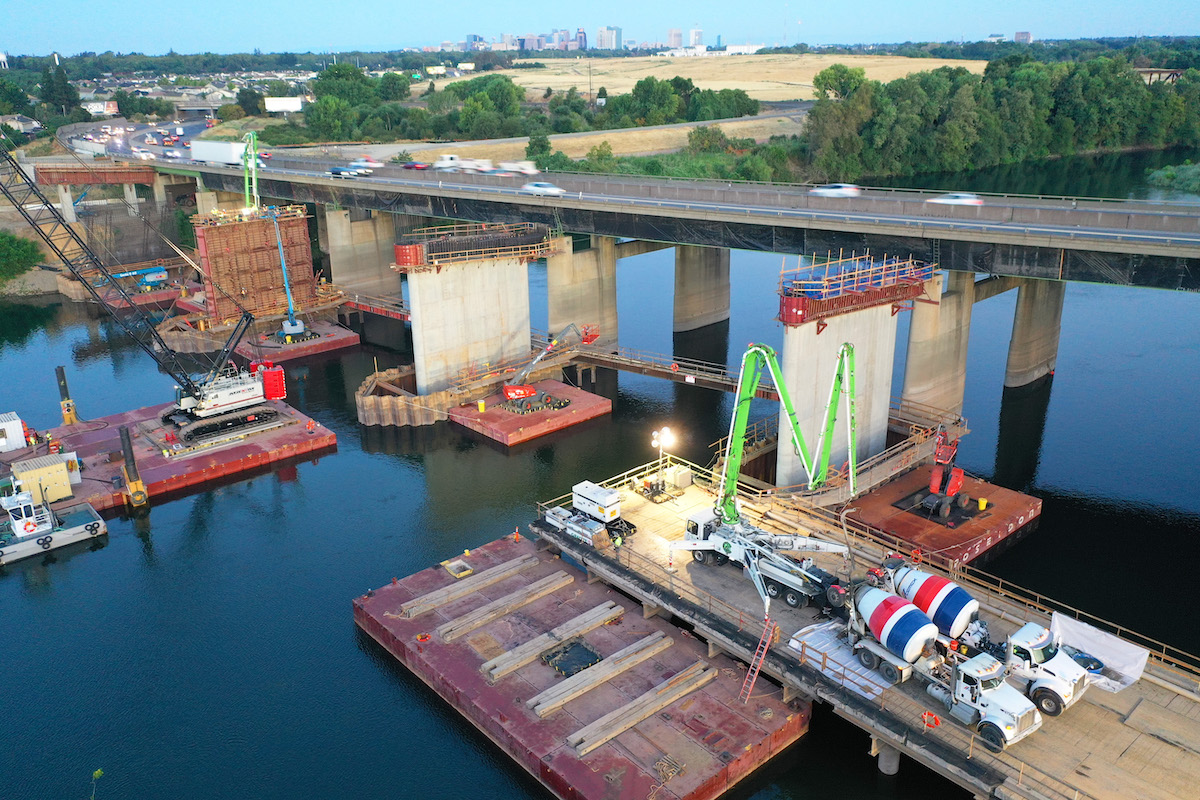The road goes through the 5,656-acre Fair Hill Natural Resources Management Area (Fair Hill NRMA). Fair Hill is known for its pristine fields, woodlands, and natural beauty. Previously privately owned, the state purchased the area in 1975. It's managed by the Maryland Department of Natural Resources (DNR).
The former bridge over Big Elk Creek was constructed in 1964 and was nearing the end of its useful service life. The three-section, steel beam bridge required MDOT SHA to perform regular maintenance.
Its replacement is a clear-span structure that’s 160 feet, including clear span girders of 140 feet. The new bridge was designed this way to eliminate support piers near the creek. “It’s also anticipated that the new bridge will reduce long-term maintenance by eliminating elements that are subject to deterioration and scouring from Big Elk Creek during heavy rain events. The clear-span design also improves the view along the creek,” says Ken Fender, a MDOT SHA District Engineer.
Other project elements include drainage improvements, shoreline protection, and bioswale construction.

| Your local Gomaco dealer |
|---|
| Terry Equipment |
Reconstruction of two Fair Hill NRMA Park trail segments under and immediately adjacent to the bridge was the final element of the project. Both trail segments were constructed of reinforced concrete with slope, shoreline, and drainage improvements; steel railing along the creek; and chain link fence along the abutments. The slope and shoreline improvements consist primarily of Class I and Class II riprap for erosion protection.
High relief stamped concrete elements are part of the bridge design as they complement the natural stone features found throughout the Fair Hill NRMA.
“MD 273 is a daily commuter route in and out of Newark, Delaware, and the temporary signals added several minutes to their trips, especially during peak morning and evening periods,” Fender says.
The west side trail is lightly used, while the east side trail sees regular use year-round by hikers, cyclists, and equestrians. Maintaining east side trail access throughout construction was required per the agreement with DNR. The team constructed a temporary shelter under the bridge. The shelter consisted of tall chain link fence panels with a flat roof to ensure debris from bridge demolition and construction activities did not end up on the trail.
Occasional daily trail closures at the bridge were necessary, and a multi-week closure was utilized to reconstruct the east side trail at the bridge toward the end of the project. Trail users were alerted to any trail access changes via signs posted in all the Fair Hill NRMA parking lots. Project staff, in concert with Fair Hill NRMA staff, ensured that trail detours were marked.

| Your local Trimble Construction Division dealer |
|---|
| SITECH Southwest |
| SITECH West |
Getting materials to the project area was also a challenge. “Heavy trucks could not directly access the trail areas, so concrete for the new trail segments was pumped down from the bridge,” Fender says.
Construction crews and supply chains were impacted by COVID-19. These impacts – along with typical weather influences and other factors – combined to push the schedule out on items such as micropiles and deck pours.
Allan Myers, Inc., headquartered about an hour from the project site, served as the general contractor. MDOT SHA has awarded numerous road and bridge contracts to Allan Myers over the past few years.
The project budget was $10.7 million – $9.4 million was used for construction costs. Funding for the project came from the federal and state government via an 80/20 split. The project is tracking close to budget.
With the project essentially complete, drivers enjoy more reliability and a smooth ride with the new bridge. MDOT SHA has fewer maintenance calls with the new bridge, freeing them up for other projects. Finally, pedestrians, bicyclists, and equestrians can enjoy reconstructed existing trail segments. Everybody wins.

| Your local Gomaco dealer |
|---|
| Terry Equipment |



















